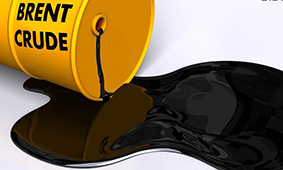
Oil product futures rally short-lived as market weighs impact of New Brunswick refinery explosion


Product futures had moved briefly higher in the wake of reports of an explosion and fire at Irving's Saint John refinery. The facility is a major supplier of gasoline for eastern Canada and New England.
The refinery was already down for seasonal maintenance when the explosion took place, limiting the immediate impact on crude and product flows.
Prompt RBOB traded as high as at $2.0928/gal and ULSD reached $2.3821/gal immediately following the incident, but later ULSD prices moved lower and RBOB was hovering around even.
Ample gasoline inventories would also mitigate the upside price risk from any potential supply shock. Atlantic Coast stocks increased to 69.26 million barrels during the week ended September 28, according to US Energy Information Administration data. East Coast inventories are now at their highest level since May 2017 and are more than 7.18 million barrels above the five-year average.
Crude futures moved lower on Monday, with ICE December Brent down 48 cents at $83.68/b and NYMEX November WTI 26 cents lower at $74.08/b.
Signs that Iran may continue to export some crude after US sanctions take effect next month weighed on crude prices. Last week, Indian refiners said they will import at least 9 million barrels of crude from Iran in November, defying US calls for a complete cessation of Iranian exports. India was the second largest buyer of Iranian crude in September, data from cFlow, S&P Global Platts trade flow software, showed.
Washington has exerted significant pressure on buyers of Iranian crude in recent weeks, but on Friday officials suggested they may be open to issuing sanctions waivers.
"Reports of US waivers for sanctions brought the market under selling pressure initially, but it doesn't seem to have lasted," Tradition Energy analyst Gene McGillian said.
Earlier on Monday, Brent futures dipped as low as $82.66/b and WTI was trading down to $73.34/b.


Trump weighs using $2 billion in CHIPS Act funding for critical minerals

Codelco cuts 2025 copper forecast after El Teniente mine collapse

Electra converts debt, launches $30M raise to jumpstart stalled cobalt refinery

Barrick’s Reko Diq in line for $410M ADB backing

Abcourt readies Sleeping Giant mill to pour first gold since 2014

Nevada army depot to serve as base for first US strategic minerals stockpile

SQM boosts lithium supply plans as prices flick higher

Viridis unveils 200Mt initial reserve for Brazil rare earth project

Tailings could meet much of US critical mineral demand – study

Kyrgyzstan kicks off underground gold mining at Kumtor

Kyrgyzstan kicks off underground gold mining at Kumtor

KoBold Metals granted lithium exploration rights in Congo

Freeport Indonesia to wrap up Gresik plant repairs by early September

Energy Fuels soars on Vulcan Elements partnership

Northern Dynasty sticks to proposal in battle to lift Pebble mine veto

Giustra-backed mining firm teams up with informal miners in Colombia

Critical Metals signs agreement to supply rare earth to US government-funded facility

China extends rare earth controls to imported material

Galan Lithium proceeds with $13M financing for Argentina project

Kyrgyzstan kicks off underground gold mining at Kumtor

Freeport Indonesia to wrap up Gresik plant repairs by early September

Energy Fuels soars on Vulcan Elements partnership

Northern Dynasty sticks to proposal in battle to lift Pebble mine veto

Giustra-backed mining firm teams up with informal miners in Colombia

Critical Metals signs agreement to supply rare earth to US government-funded facility

China extends rare earth controls to imported material

Galan Lithium proceeds with $13M financing for Argentina project

Silver price touches $39 as market weighs rate cut outlook

















